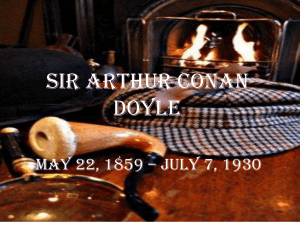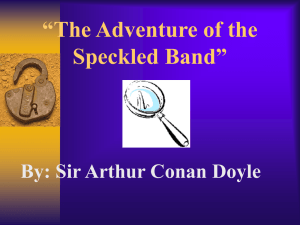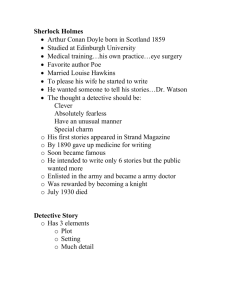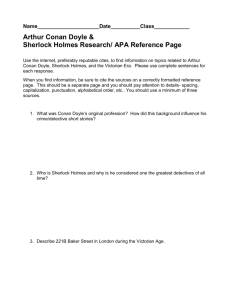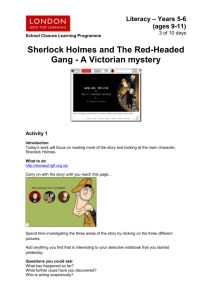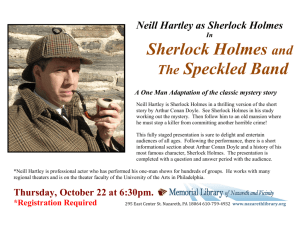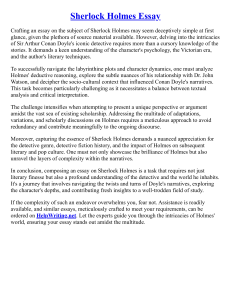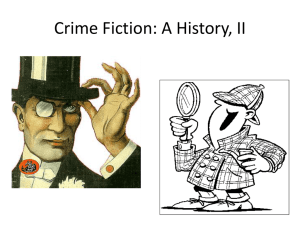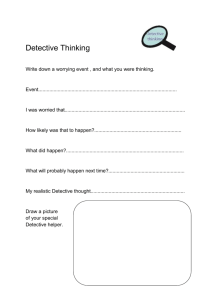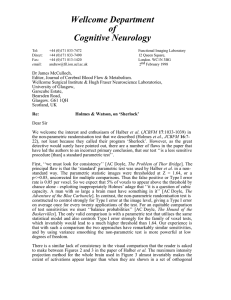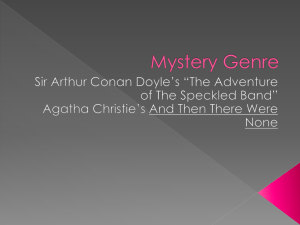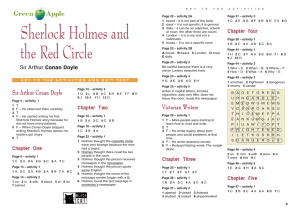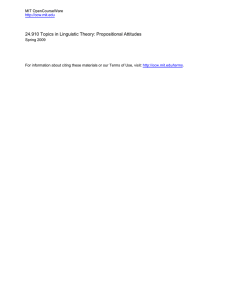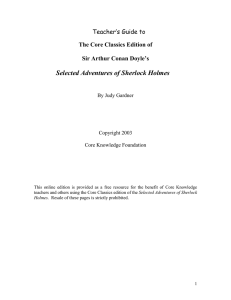Sherlock Holmes
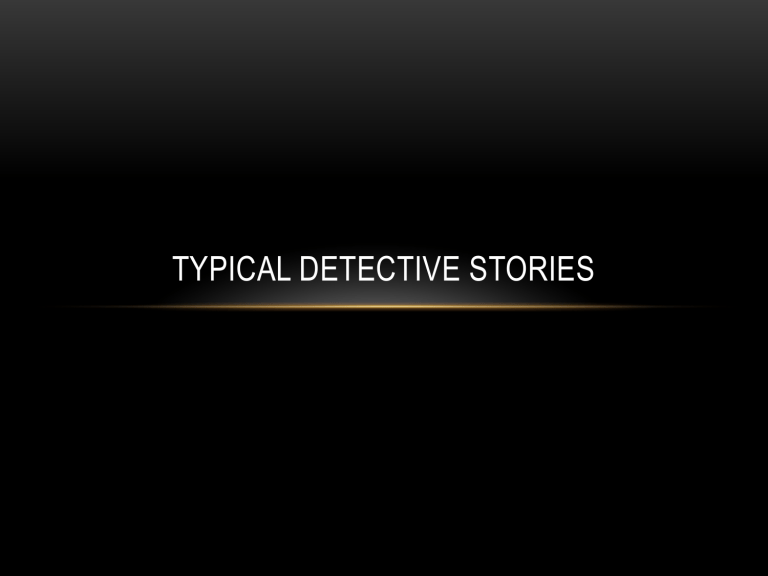
TYPICAL DETECTIVE STORIES
ELEMENTS
• Hero: Main character/eccentric detective, who often prefers privacy and wants to separate self from rest of human race.
• Structure: Many begin stories with impact of crime, then work backwards to reconstruct crime.
• Crime of choice: Murder
• Fair Play: Reader must have all clues the detective has
• Conclusion: Explanation/Unsolved problems answered. Presence of “Community” of characters
ORIGIN
•
First Detective Story: “Murders in Rue
Morgue” by Edgar Allan Poe
•
Set standards for all future detective fiction writers
SIR CONAN DOYLE (1859-1930)
• Medical Doctor
• Created world’s best known fictional detective: Sherlock Holmes
• Character modeled after Dr. Joseph Bell
(Doyle’s professor of surgery at Edinburgh
University) Doyle was impressed with his snap diagnosis or an unexpected conclusion based on logical “detection”
SHERLOCK HOLMES
• Created late 1880’s
• One of most famous literary characters of all time (Doyle made him so real)
• Science methodology: One of Victorian Era’s characteristics
• Holmes: Master of applying scientific methodology to solving criminal cases
SHERLOCK HOLMES’S STORIES
• 60 written by Sir Arthur Conan Doyle
• Took place between 1874-1914 (40 years)
• Maturation of Sherlock Holmes
AS YOU READ THINK ABOUT…..
• What is it about the character of Sherlock Holmes that makes him so enduring?
• How does “The Adventure of the Speckled Band” fall into the category of a detective story?
